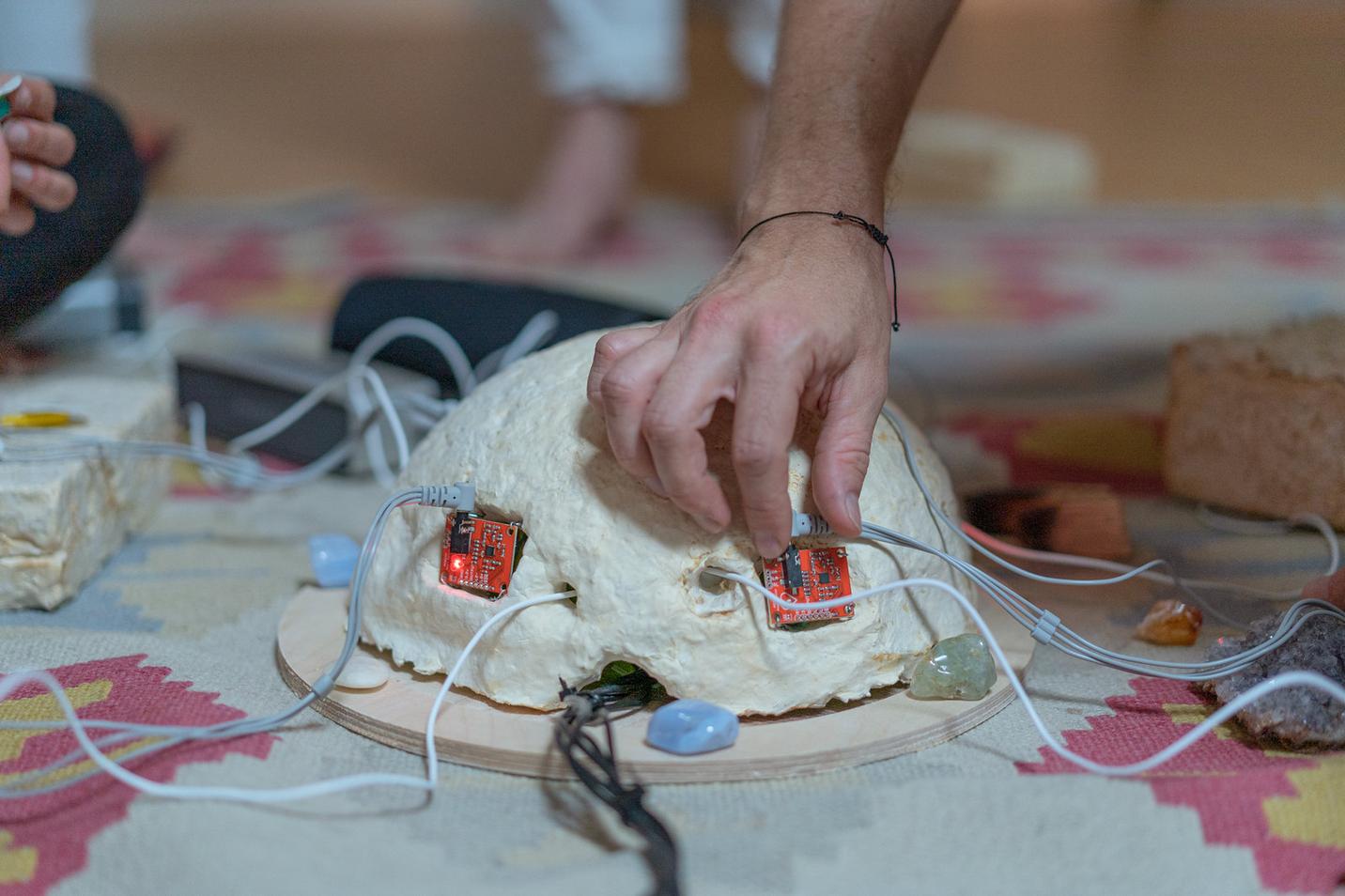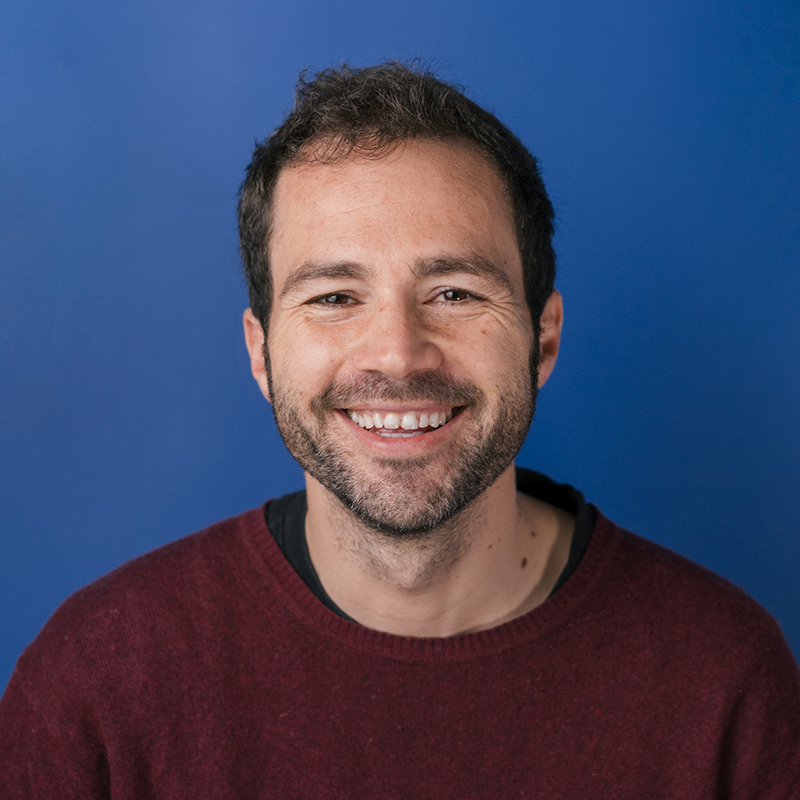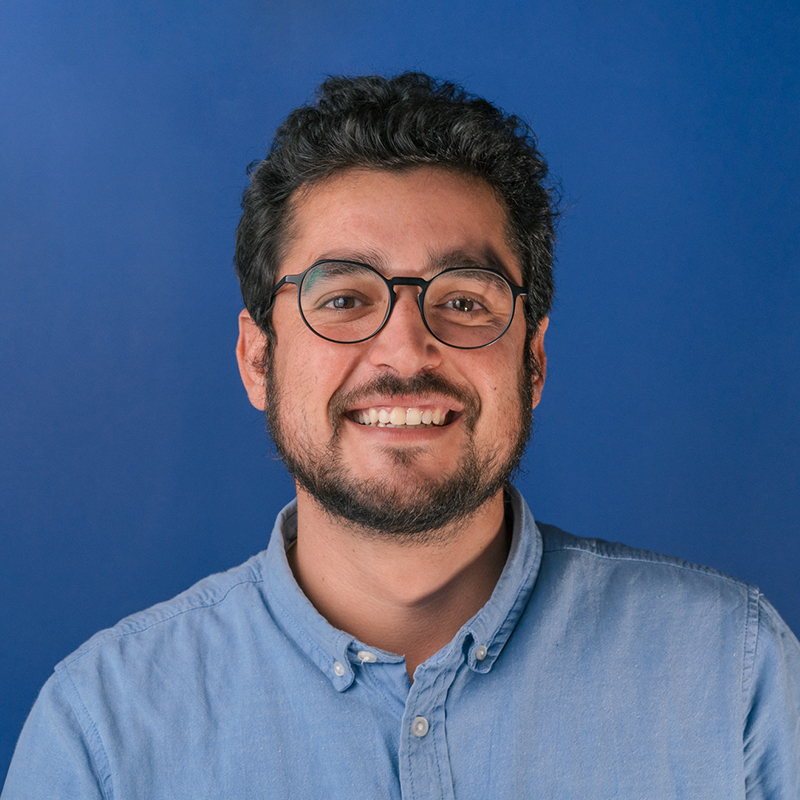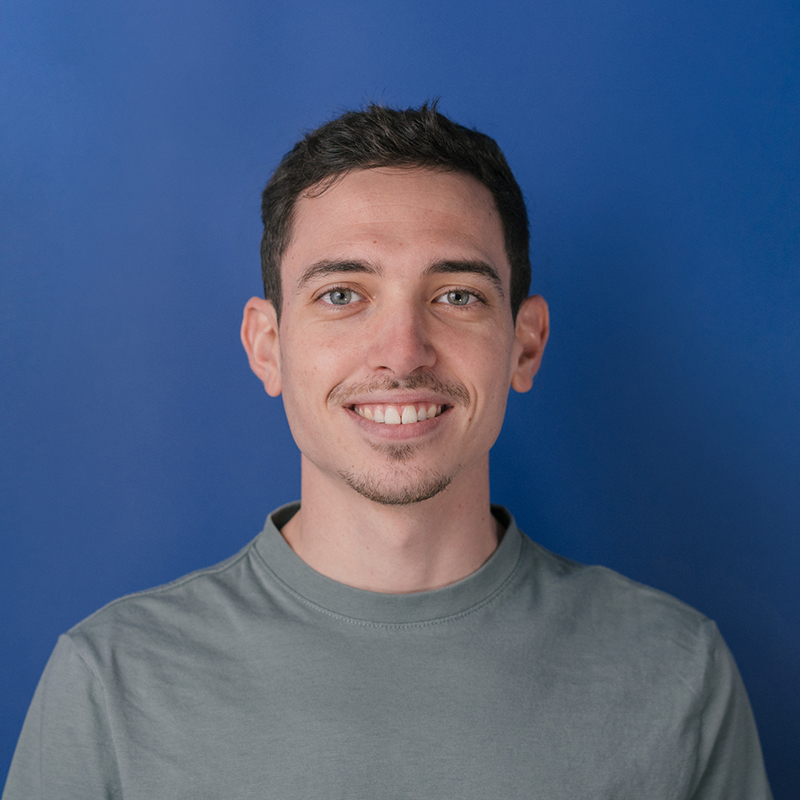Syllabus⇝
Advanced manufacturing, rapid prototyping and new design methodologies are not only changing how we work, live and play but reshaping the processes and interactions in the cities and sociecities. The introduction of those processes into the design and industry fields are changing the paradigm on how we conceive the actual society and its production methods. This new mediation between the old knowledge and new techniques is making the process as important as the end work, all becoming a whole.
During this 2 term course (2&3), students learn how to envision, prototype and document their projects and ideas through many hours of hands-on experience with digital fabrication tools, taking a variety of code formats and turning them into physical objects. The program provides advanced digital fabrication instruction for students through an unique, hands-on curriculum and access to technological tools and resources.

The program apply Fab Academy mindset and set of skills, but applying new methodologies such as "challenges", redistributing the impact of weekly hours and adding new assessment criteria.
The instructional design of the course has two fundamental assumptions, individual reflection tasks for each weekly topic, and monthly intensive maker-sprint in the form of “micro-challenges”. Students work in small groups to develop week-long projects applying knowledge and skills from the previous Fab Academy topics with concepts related to MDEF and their research projects, aimed to bridge the gap that has existed between these two courses and demonstrating the competencies acquired.
The challenges combine four weekly cycles into one intense project-based fabrication sprint. Therefore, the objective is to combine the skills and knowledge acquired throughout the weeks prior to the challenge in order to ideate a small project that is connected to their personal interests and individual or collective interventions. The students have to use the technology and equipment available and focus on the specific skills they have already acquired during the past weeks. This is set as a primary goal to foster the students’ capacity to design and conceptualize their projects with the tools and skills they might have available, without limiting the possibilities of what they could achieve. In addition, the challenges align with the MDEF design studio in an effort to connect each challenge topic to the current status of the design interventions of the students. As mentioned before, the intention is to weave the two courses together in order to enhance both for the benefit of the students’ projects. The design studio provides a critical context in relation to the technologies developed during Fab Academy, and in return the Fab Academy course yields the skills and knowledge to help physicalize these concepts.
Deliverables⇝
Each student builds a portfolio on their respective websites that documents their mastery of different certificates taken individually along each week and their integration into a final, larger project, related to their masters thesis development.
The DESIGN FOR PROTOTYPING COURSE is PASSED by growth progress rather than a global goal, for successful completion of each weekly assignment and challenge is a must.

Additional Resources⇝
Hackmd Page For More Information
Faculty⇝
Santiago Fuentemilla Garriga , is Master degree in Architecture and postgraduate in digital fabrication and rapid prototyping (Fabacademy). He accumulates more than 15 years of experience in studios (OPR, FHAUS, OPERA, Brullet de Luna associats), designing multidisciplinary projects at an international level. Since 2013 he is part of the IAAC - Fab Lab BCN team, as coordinator and leader of Future Learning Unit (FLU), an area of research, design and implementation of innovative educational models that promote growth, learning and creativity to generate opportunities to achieve the goals and challenges of uncertain futures. FLU participates in private and EU funded research projects such as TEC-LA, Shemakes, Ruractive, DOIT, Phablabs 4.0, Creative Minds, among others. He is director of the global academic programs Fab Academy and Fabricademy, in the Barcelona node, executive board of Fab Learning Academy, and faculty of the Master in Design for Emergent Futures (MDEF) and The Master in Design for Distributed Innovation (MDDI).
Eduardo Chamorro is an architectural technologist, additive manufacturing expert and researcher, focusing on digital fabrication, materials, robotics and emerging technologies.
He is currently a PhD candidate at Swinburne University (Melbourne, Australia) in High performance composites additive manufacturing for architecture.
Works as faculty and researcher at FabLab Barcelona & IAAC (Institute for Advanced Architecture of Catalonia) in Barcelona, Spain as faculty in the Master in Design for Emergent Futures (MDEF), Master for Advanced Architecture (MAA), Master in Advanced Ecological Buildings (MAEB), 3D Printing in Architecture (3DPA), FabAcademy at IAAC FabLab Barcelona. For him, working in a multi-scalar environment must be the priority of architects nowadays. His research focuses on the implementation of additive manufacturing technologies along different architectural scales imaging multiple processes and materialities.
Eduardo holds a Master's Degree in Architecture from CEU San Pablo University (Spain), a Fab Academy diploma in Digital Fabrication offered by the Fab Lab Network and a Master's Degree in Advanced Architecture from IAAC (Spain), with a specialisation in digital fabrication, materiality novel design methodologies. He holds as well a Spanish architectural licence.
Moreover, he has worked as Fab Lab Seoul director, researcher at several architecture studios, professor of computational design and fabrication at CEU University and advisor for various architecture collectives. He is also a regular collaborator at Fab Lab Madrid. He is always seeking innovative architecture that attempts to solve and adapt to social needs. He has also been a tutor for the Master of Science in Computational and Advanced Design (MSc CAD) at Design Morphine - UACEG (University of Architecture, Civil Engineering and Geodesy).
Josep Martí is an Industrial Engineer from Barcelona. Josep started his career as a BI consultant but decided to change his professional path graduating from Fabacademy in 2019. Since then, he has taught digital fabrication, design and electronics in the Fablab, being part of the Future Learning Unit teaching in Fabacademy, Fabricademy and the Master in Design in Emergent futures. Recently, he started his path as a researcher in Erasmus+ projects. He holds a Bachelor’s degree in Industrial Technology Engineering and a Master’s degree in Industrial Engineering, specialising in Automatic Control, both from the Polytechnic University of Catalonia (UPC) and the Fabacademy diploma. He has always been interested in the Maker culture and is always looking to learn and create new things.
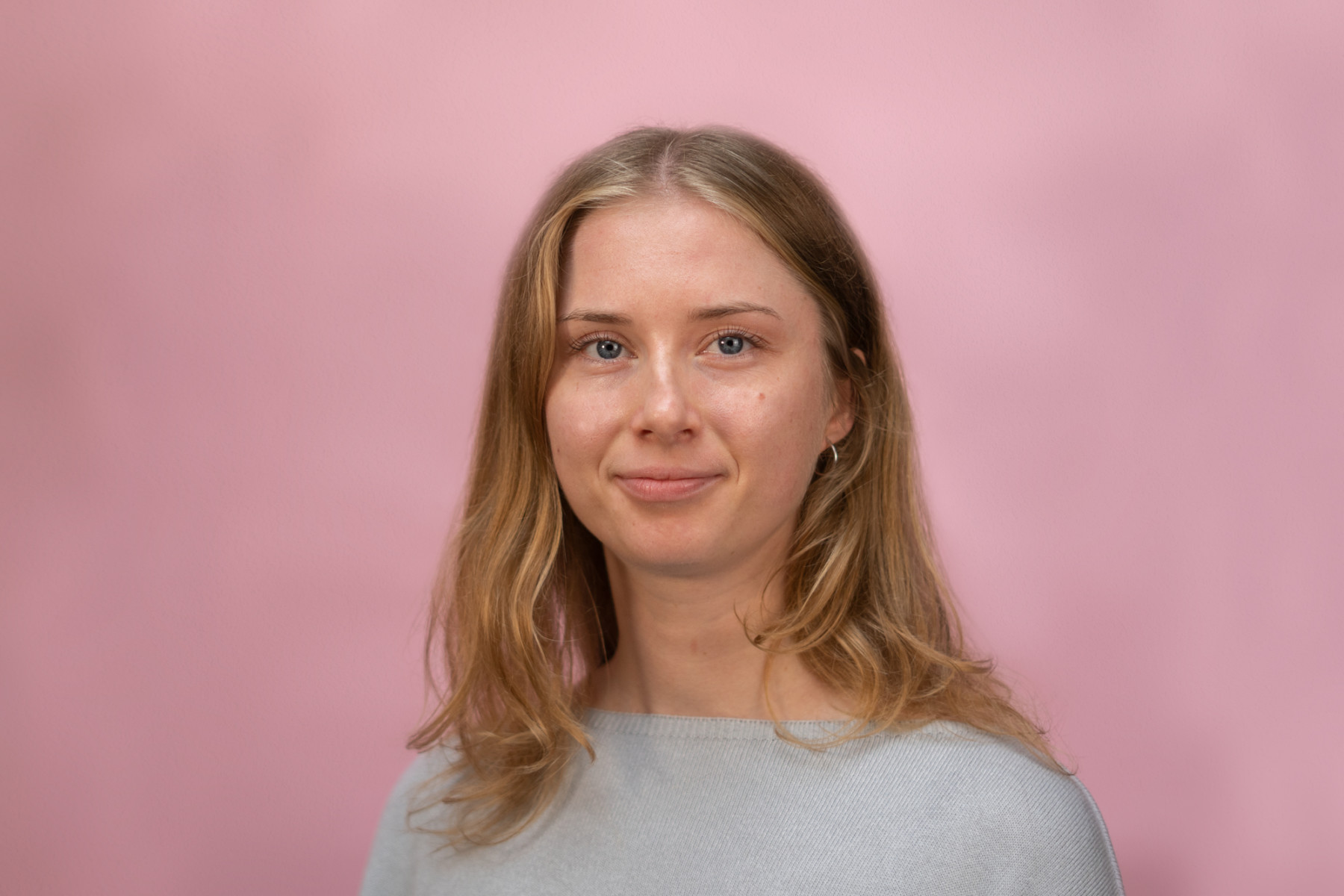
Petra Garajová
Materials & Textiles
Petra is a Slovak designer with a background in architecture, exploring the boundaries of material science, digital manufacturing and textiles. Currently she is working in Fab Lab Barcelona as a Fabricademy Local Instructor. Her main interest arises from biology and waste materials which lie on the borders of various artistic disciplines. Nowadays, she is also a co-founder of the Experimental Design platform which is using fashion as a tool to reshape the connection between nature, soft materials and the human body using new technologies. Petra holds a Master’s degree in Arts and Architecture at the Academy of Arts Architecture and Design in Prague. After her architectural studies she graduated from Fabricademy – Textile and Technology Academy in Fab Lab Barcelona IAAC. During her studies she was part of Shemakes.eu European project as an Ambassador between Fab Lab Barcelona and TextileLab Iceland working on the Lab to Lab project – Rethinking Wool. Her Fabricademy final project was awarded the Young Scientist Award 2022.
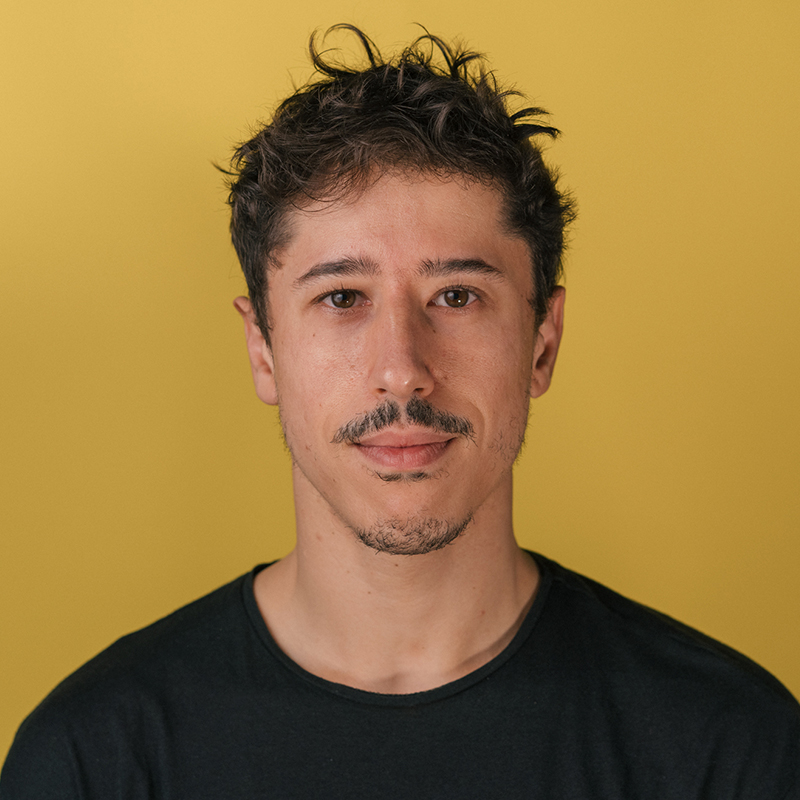
Oscar Gonzalez
Sense Making Expert
Óscar González is an Industrial Engineer based in Barcelona with expertise in data analysis, testing and calibration through his experience in automotive and sensor development. Óscar is the Sense Making lead at Fab Lab Barcelona team doing research and development within the Smart Citizen project and is an instructor at the Fabacademy program.
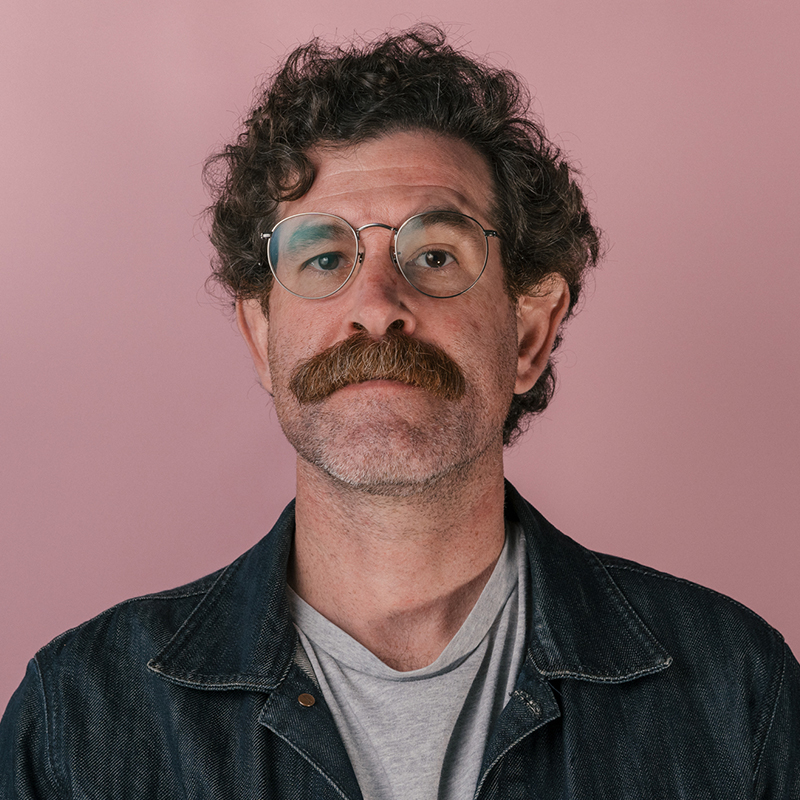
Víctor Barberán Soler
Hardware and Software Expert
Víctor Barberán is an Industrial Designer with more than 20 years of experience developing custom technology for multidisciplinary art and science projects. Throughout his career, Victor Barberán has worked in electronics design, software development, data analysis, modelling and animation, and digital postproduction. Currently, Victor works as part of the Fab Lab Barcelona as a software and hardware developer in multiple research projects, such as the Smart Citizen project. He is also the Electronics lead for the Fabricademy, Fab Academy and the Masters of Design for Emergent Futures program.
